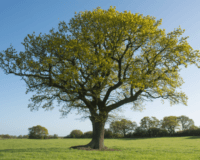Preach the gospel to yourself first, then your children

Sin.
That heavy, one-syllable word that can feel like a gut punch when we stop and ponder our own. As Christian parents we can jokingly say we’re “raising little sinners” with a smile and a knowing look that says we realize they’re not perfect. Yet, how often do we pause to take stock of how we sin against the Lord? And even more painful to reflect upon: how do our roles as parents expose our sin? If we aren’t examining our own hearts, how can we see our need for the gospel? The same gospel we are teaching our children applies to us too.
While motherhood brought deep love and joy I had not known before, it also revealed anger, bitterness, and pride I hadn’t realized were in me. Of course, they’d always been there long before motherhood since I was conceived in a fallen world. But in many ways, a certain sin had laid dormant, quietly taking root in my heart; sin that was damaging, yet unseen. Then like a weed sprouting up overnight, these sin struggles came into my view in the months and years after my beautiful baby girl came into my life. God had seen this sin, Jesus died for it, yet I had not confronted its lurking in my heart until it threatened to harm my family.
Because we love our children, intending to raise them well and know who Jesus is, we can sometimes become so focused on our role to teach, guide, and discipline that we can miss how our heavenly Father longs to do the same for us. And when we look outward to our children and their sin, we may avoid looking at our own.
When you think you’re thriving and then the weeds sprout
This last spring, my husband, three-year-old, and myself took on the challenge of cultivating flowerbeds that had not been touched in years. I remember planting day: the excitement, the new life before us, the care we took as we measured and turned up the soil. Fast forward one week later and weeds were everywhere! Because we had intentionally watered, the weeds under the surface sprang up to choke out our new plants. I felt discouraged. As I quietly pulled weeds during nap time, I reflected on the Parable of the Sower. Jesus told the crowd that “some seeds fell along the path, and the birds came and devoured them. Other seeds fell on rocky ground, where they did not have much soil, and immediately they sprang up, since they had no depth of soil, but when the sun rose they were scorched. And since they had no root, they withered away. Other seeds fell among thorns, and the thorns grew up and choked them. Other seeds fell on good soil and produced grain, some a hundredfold, some sixty, some thirty” (Matthew 13: 4–8 ESV).
In our image-conscious world, it is much easier (and often encouraged) to focus on the outward appearance. We’re convinced that because we have some good fruit in our life—or in this case, lovely flowers—the soil must be good. But as I slowly clawed through this dense, untouched clay, I pulled deep roots from the flowerbed, roots far more destructive than the small green shoots on the surface. As a believer I like to think I am the seed that fell on the good soil. But in that moment, I paused and thought, what thorns in my life threaten to choke out the harvest?
From the outside, the world might see our well-dressed family at church, our children’s accomplishments, or our manicured lawn, but “the Lord looks on the heart” (1 Samuel 16:7). How often do we feel so confident in our parenting, then seemingly out of nowhere the angry burst erupts? Or the unbridled tongue lashes out the unkind word to a spouse or child? At other times our sin is silent. We harbor ungracious feelings toward a family member, judgment toward another parent, sloth from consuming too much media, or envy of a fellow mom. We are fooling ourselves if we say our sinful behaviors and thoughts are the exception and make excuses for them. We must take account of these behaviors, and as theologian John Owen famously said, we must “be killing sin or it will be killing you.” How do we go about that?
Our role in cultivating good soil
Let us be clear, it is the work of God to make us righteous in his sight and put our sin to death, and he has done that through the atoning sacrifice of Jesus Christ on the cross and sanctifying work by the Holy Spirit. “He saved us, not because of works done by us in righteousness, but according to his own mercy, by the washing of regeneration and renewal of the Holy Spirit, whom he poured out on us richly through Jesus Christ our Savior” (Titus 3:5–6). We aren’t meant to passively sit in that gift; we are called to action. Paul’s letter to the Romans has cornerstone truths for the Christian faith, and several from the sixth chapter point to our role in cultivating good soil in our lives and in our parenting. Some key truths:
• Perfect grace is not an excuse to sin: “Are we to continue in sin that grace may abound? By no means!” (Romans 6:1).
• No longer a slave to sin: “We know that our old self was crucified with him in order that the body of sin might be brought to nothing, so that we would no longer be enslaved to sin” (Romans 6:6).
• Alive in Jesus: “So you also must consider yourselves dead to sin and alive to God in Christ Jesus” (Romans 6:11).
• Instruments of righteousness: “Present yourselves to God as those who have been brought from death to life, and your members to God as instruments for righteousness” (Romans 6:13).
Our call to action is to submit to God through confession, asking for his forgiveness and for strength to repent. We must believe we are, in fact, dead to sin and that we can become instruments of righteousness through Jesus. And God, who is faithful, will remove the wickedness rooted so deeply within our hearts. In his loving kindness, he will swiftly cut out the thorns and weeds of sin that must be tended for his ultimate glory. The Lord will help the ground be tender and responsive to his hands, which are at work for our good.
Psalm 51 offers a painful and intimate view of David’s confession to God after the murder of Uriah and adultery with Bathsheba. This prayer is vivid and direct. David is asking for mercy and acknowledging his sin. He concludes by noting the sacrifices the Lord desires are not burnt offerings, but “a broken spirit; a broken and contrite heart” (Psalm 51:17). As Ethan Collins wrote, reflecting on theologian Charles Spurgeon’s words, “That it is only a broken heart that is humble before God: ‘Broken hearts never play at repenting, nor play at believing…with broken hearts, the hymn is a real hymn, the prayer is a real prayer.’”1 Are we broken-hearted over our sin?
A privilege to be pruned for our sake and our children’s
Some of the most beautiful words in Scripture are found in John 15. It opens when Jesus calls on his friends to abide in him. He shares that only by abiding in him can they produce much fruit, and he outlines what they can expect from God the Father. “I am the true vine, and my Father is the gardener. He cuts off every branch in me that bears no fruit, while every branch that does bear fruit, he prunes so that it will be even more fruitful” (John 15:1–2 NIV). There is no escaping the “garden shears” of the Father—either he is pruning, or he is cutting off. God is perfectly holy. He cannot accept and will not tolerate sin. When we abide in Jesus, we take on his righteousness before God, and the work of the Holy Spirit will sanctify us each day to become more like Christ. He prunes in love and not wrath because he sees the spots where growth isn’t occurring, where the leaves dried out, where the fruit decayed, or where something withered away.
When we remind ourselves of our deep need for a Savior and how all sin separates us from God, we’re able to repeat the gospel to ourselves, then do the same for our children. We can tell our children it’s the sin that stops them from wanting to share a toy with their sibling. We can demonstrate repentance when we confess how we sinned against them and apologize. We can talk about forgiveness when someone wrongs them at school. The gospel applies repeatedly throughout our parenting journeys, and we can share these truths in conversations with our children.
In the busyness of parenting, let us not lose sight of how the enemy would love to distract or deceive us into believing that pruning is not for our own good—when, in fact, it is. As put by C.S. Lewis, “Indeed the safest road to hell is the gradual one—the gentle slope, soft underfoot, without sudden turnings, without milestones, without signposts.” Instead, let us gladly be pruned so that we can become more like Jesus each day, name and repent of our sin, and model for our children a life spent in humble submission before God. The soil of parenting is good because the gardener is perfect.
Consider a few extra resources:






